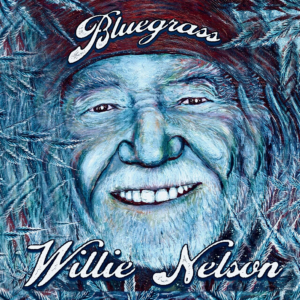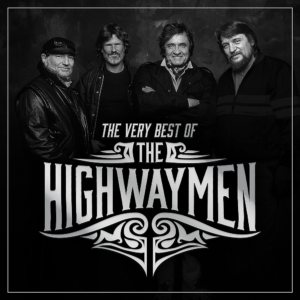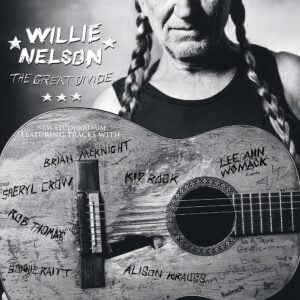Willie Nelson ¦ Phases And Stages
CHF 41.00 inkl. MwSt
LP (Album)
Noch 1 Exemplar(e) vorrätig
Zusätzliche Information
| Format | |
|---|---|
| Inhalt | |
| Ausgabe | |
| Farbe | |
| Label | |
| Serie |
Release
Veröffentlichung Phases And Stages:
1974
Hörbeispiel(e) Phases And Stages:
Phases And Stages auf Wikipedia (oder andere Quellen):
Phases and Stages is the 17th studio album by American country music singer-songwriter Willie Nelson, released in March 1974. It followed the moderate success of his first Atlantic Records release, Shotgun Willie. Nelson met producer Jerry Wexler at a party where Nelson sang songs from an album he planned to record. The single "Phases and Stages" was originally recorded the same year. Nelson recorded the album at Muscle Shoals Sound Studios in two days and Wexler produced it.
The album narrates the story of a divorce. Side one tells the woman's story and side two the man's. The album peaked at number 34 on Billboard's Top Country Albums and the single "Bloody Mary Morning" reached number 17 on Billboard's Country singles. Despite the chart positions attained by the album, and its singles, Atlantic Records closed their Country music division in September 1974.
Background and recording
In 1972, Nelson signed a recording contract with the newly created Country Music division of Atlantic Records. Producer Jerry Wexler gave Nelson greater creative control than his contract with RCA Records offered him.[1][2] Nelson met Wexler at a party in Harlan Howard's house, where he sang the songs he wrote for an album. Howard later remembered, “He got on the stool late at night when the party had thinned out, and he sang like a total album with a gut string and a stool". As Nelson's performance progressed, Howard noted that Wexler "flipped out" with the material.[3]
Nelson was excited at the prospect of using his own band, something RCA Records had not allowed him to do previously. Nelson’s road band consisted of Paul English on drums, Bee Spears on bass, Mickey Raphael on harmonica, and Bobbie Nelson on piano. Nelson recorded his first album for Atlantic Records, Shotgun Willie, in 1972.[4] Produced by Arif Mardin and Wexler, Shotgun Willie marked a change of style in Nelson's music. Nelson stated that recording the album had "...cleared his throat".[5]
A single containing the song "Phases and Stages" was first released in 1972.[6] Wexler proposed Nelson to record the new album at Muscle Shoals Sound Studio in Alabama. Wexler desired to record the album with a rhythm and blues section instead of using Nelson's band. Nelson accepted Wexler's suggestion since he considered that the producer allowed him total control on the sessions for Shotgun Willie.[7] In 1973, Nelson recorded the songs in two days with musicians Fred Carter, Jr., David Hood, Barry Beckett, Jimmy Johnson, Pete Carr and Roger Hawkins.[8]
Atlantic Records's executives criticized Wexler's decision to record in Muscle Shoals instead of Nashville.[9] Upon his return to Nashville, Nelson heard the tapes of his Muscle Shoals sessions. Unsure with the results, he decided to record the album again with his own band.[10] Atlantic Records’ Nashville A&R executive Rick Sanjek supported Nelson's decision. Sanjek booked Fred Carter Jr's Nugget Studios in Goodlettsville, Tennessee for the new sessions.[11] Sanjek took the finished product to New York to discuss the recordings with an unaware Wexler.[10] Enraged by Sanjek and his proposal, Wexler denied to replace the Muscle Shoals recordings, while he deemed the new sessions "the most horrible piece of shit you ever heard".[12] The following week, Wexler fired Sanjek and requested Atlantic engineer Tom Dowd to do the final mix.[12]
Content

Problems playing these files? See media help.
The theme of the songs centers on divorce, narrated from both viewpoints. The one of the woman is narrated on side one; while the man's is on side two.[13] The recurrent song "Phases and Stages" is repeated throughout the album, introducing several other songs.[14] The album begins with "Phases and Stages/Washing the Dishes", with the woman tired of caring for her unfaithful husband, emphasizing her domestic chores. This is followed by "Phases and Stages/Walkin'" where, after consideration, she leaves her husband at night, saying "Walkin' is better than runnin' away, and crawlin' ain't no good at all". In "Pretend I Never Happened", she advises him to forget her and continue with his life. In "Sister's Coming Home/Down at the Corner Beer Joint", her younger sister describes the woman moving back home and sleeping late. Eventually, she overcomes her grief and begins a social life at the corner beer joint, representing her liberation with the lyrics "(she's) dancin' on a hardwood floor, her jeans fit a little bit tighter than they did before". The final song of side one depicts the woman falling in love again but reluctant to admit it because she fears that her story will be repeated.[6]
The second side of the album begins with "Bloody Mary Morning", with the male narrator ordering drinks on a flight from Los Angeles, California to Houston, Texas after his wife unexpectedly left him, with "the smog and haze reminding me of how I feel". In "Phases and Stages/No Love Around" he recalls dragging in at sunrise after another night of carousing: "I come home last Saturday morning, I come home and found you gone." In the sad "I Still Can't Believe You're Gone", the man realizes the vast impact on his life of her leaving. "It's Not Supposed to Be That Way" reflects his inability to accept the situation and his grief, but still in a self-centered way. In "Heaven and Hell", the man expresses his ambivalence about living without his wife, with the lyric: "Sometimes it's heaven, sometimes it's hell, and sometimes I don't even know." The final track is "Phases and Stages/Pick Up the Tempo/Phases and Stages", in which the man reveals his inability to change his character, and accepts his nature and its consequences.[15]
Nelson called the subject of many of the songs "grief, grief, and more grief", while he also clarified that Phases and Stages was a fictional account: "The overall theme was not a reflection of my own life...I was simply making up a story. Sure, I’d gone through breakups and heartaches of my own. What human soul hasn’t? ".[16] Nelson revealed that “It’s Not Supposed to Be That Way” was written for his daughter Susie, "a father talking to his daughter, saying to her what I was now saying to Susie. Instead of trying to give people advice, I am better at putting my feelings into a song."[17] "I Still Can’t Believe You’re Gone" was written about Paul English’s wife Carlene, who committed suicide, but, Nelson later suggested, “it has a lot of different meanings to a lot of different people who have no idea why I wrote it.”[18] “Bloody Mary Morning” previously appeared on Nelson's 1970 LP Both Sides Now but “the sentiment fit the story”[19] so he recut it at Muscle Shoals.[12]
Release and reception

The album was released in March 1974.[12] Initially, Nelson was concerned with the commercial performance of another concept album following the failure of Yesterday's Wine.[20] It peaked at number 34 in Billboard's Top Country Albums and number 187 in Billboard's Top LPs & Tapes.[21] The single "Bloody Mary Morning" peaked at number 17, and its follow-up, "I Still Can't Believe You're Gone", peaked at number 51 in Billboard's Country singles.[22]
Despite the moderate success of Nelson's singles, Atlantic Records' executives were unhappy with Nelson's style, and closed their Country Music division in September 1974. Wexler protested to Ahmet and Nesuhi Ertegun, arguing that Atlantic had Willie Nelson. The Ertegun brothers replied "Willie Who? Go ahead and close it." Following the division's closure, Wexler resigned.[23] The album sold 400,000 copies, and Nelson was released from his Atlantic contract, prompting Columbia Records' executives to offer Nelson a contract giving him complete creative control of his works.[2]
Wexler later described Phases and Stages and Shotgun Willie as "having set Willie on a new path ... it was the coalescing of his audience, where the rednecks and the hippies came together. And to this day, that's Willie's audience."[24] Mentioning Atlantic Records's doubts of recording Nelson at Muscle Shoals, Wexler wrote on his autobiography: "They said Muscle Shoals was too R&B for Willie. I said Willie was too R&B for Nashville".[9] Nelson declared "Playing with the Muscle Shoals rhythm section, I was able to sharpen the edges. Wexler was right. That studio brought out the blues in me, big time.”[19] The album became one of the first concept albums in country music.[25]
Phases and Stages was reissued by Atlantic Records on CD and LP formats in 2008.[26]
Critical reception
| Review scores | |
|---|---|
| Source | Rating |
| Rolling Stone | Favorable[15] |
| Texas Monthly | Favorable[27] |
| Billboard | Favorable[28] |
| Christgau's Record Guide | A−[29] |
| Newsweek | Favorable[30] |
| Los Angeles Times | Favorable[31] |
| Detroit Free Press | Favorable[32] |
| The Evening Sun | Favorable[33] |
| Register and Tribune Syndicate | Favorable[34] |
| Allmusic | |
Rolling Stone wrote: "(Nelson) seems to understand an unloved woman better than any dozen articles from Ms. (magazine). The fact that Nelson can fashion a believable scenario with such sparseness is a tribute to his ability to turn experience into good music. Phases And Stages, his best work to date, now seems to call out for the filmmaker who can turn good music into good cinema".[15] Texas Monthly described the album as: "...a compassionate account of dissolution of marriage, which gave extremely sensitive male and female viewpoints".[27]
Billboard wrote: "Nelson's unfettered voice honestly portrays his songs of love and lament".[36] Critic Robert Christgau wrote: "Nelson's combination of soft-spoken off-key and battered honky-tonk matches the bare, responsive country music Jerry Wexler has gotten out of the Muscle Shoals regulars."[29] Newsweek wrote: "In Phases and stages (Nelson) looked far beyond country music's traditional shore of self pity toward a clear vision of real life country divorce".[30]
The Los Angeles Times review by critic Robert Hilburn remarked previous attempts at concept albums by Johnny Cash, Merle Haggard and Bob Wills on country music and called Phases and Stages "an important breakthrough" for musicians of the genre to "use more care and ambition in the production of their albums". Hilburn felt that the result of the album presented a "chilling, authentic reflection of the contradictory, semi-desperate feelings" regarding divorce. He considered Nelson's voice "restrained, yet dramatic, while he deemed the instrumentation in the album "brilliantly controlled, economic and tailored". Hillburn further added that Wexler's production and the Muscle Shoals musicians added the "right, crisp distinctive edge" that the album presented. The review concluded that the album was a "major work by an artist whose talent has long deserved more attention".[31]
The Detroit Free Press deemed the songwriting in the album "heavy, heart-holding words".[32] In its review, The Evening Sun mentioned that Phases and Stages was "being talked up as C&W's answer to Tommy and Sgt. Pepper's Lonely Hearts Club Band". The reviewer added that it would "hopefully" attract listeners and "convince the people" to listen to Country music and to "discover the passion and intelligence, the perceptions and observations so abundant through it".[33] Register and Tribune Syndicate welcomed it as a "well-conceived, complex performance, a true concept". It considered that the album was "heightened" by Nelson's "light but powerful tenor vocals", while it remarked the "oodles of careful producer's effects" by Wexler.[34]
Stephen Thomas Erlewine wrote for Allmusic: "...the deceptively relaxed arrangements, including the occasional strings, not only highlight Nelson's clever eclecticism, but they also heighten the emotional impact of the album. [...] As a result, this is not just one of Willie Nelson's best records, but one of the great concept albums overall".[35]
LP track listing
All songs written by Willie Nelson.[13]
| No. | Title | Length |
|---|---|---|
| 1. | "Phases and Stages (Theme)" / "Washing the Dishes" | 2:06 |
| 2. | "Phases and Stages (Theme)" / "Walkin'" | 3:58 |
| 3. | "Pretend I Never Happened" | 3:00 |
| 4. | "Sister's Coming Home" / "Down at the Corner Beer Joint" | 3:46 |
| 5. | "(How Will I Know) I'm Falling in Love Again" | 3:27 |
| No. | Title | Length |
|---|---|---|
| 1. | "Bloody Mary Morning" | 2:48 |
| 2. | "Phases and Stages (Theme)" / "No Love Around" | 2:24 |
| 3. | "I Still Can't Believe You're Gone" | 4:15 |
| 4. | "It's Not Supposed to Be That Way" | 3:27 |
| 5. | "Heaven and Hell" | 1:52 |
| 6. | "Phases and Stages (Theme)" / "Pick Up the Tempo" / "Phases and Stages (Theme)" | 3:26 |
Personnel
|
|
Charts
| Chart (1974-1976) | Peak position |
|---|---|
| US Billboard 200[37] | 187 |
| US Top Country Albums (Billboard)[38] | 34 |
References
- ^ Kienzle, Richard 2003, p. 251.
- ^ a b Cusic, Don 2008, p. 120.
- ^ Streissguth 2013, p. 41.
- ^ Kienzle, Richard 2003, pp. 250, 251].
- ^ Tichi, Cecilia 1998, p. 341.
- ^ a b Reid, Jan 2004, pp. 227, 228.
- ^ Thomson, Graeme 2012, p. 257.
- ^ Wexler, Jerry 2012, p. 358.
- ^ a b Tapia, Laura Flynn & Lewis, Yoshie 2007, p. 104.
- ^ a b Thomson, Graeme 2012, p. 258.
- ^ Chapman, Marshall 2010, p. 226.
- ^ a b c d Patoski 2008, p. 277.
- ^ a b c d Nelson, Willie 1974.
- ^ Nelson & Ritz 2015, p. 230.
- ^ a b c Flippo, Chet (March 14, 1974). "Phases and Stages – Willie Nelson". Rolling Stone. Wenner Global Media LLC. Retrieved September 16, 2011.
- ^ Nelson & Ritz 2015, pp. 231–232.
- ^ Nelson & Shrake 1988, p. 309.
- ^ Nelson & Shrake 1988, p. 174.
- ^ a b Nelson & Ritz 2015, p. 231.
- ^ Nelson & Shrake 1988, p. 201.
- ^ "Chart History - Willie Nelson - Top Country Albums". Billboard. Retrieved April 23, 2021.
- ^ "Chart History - Willie Nelson - Hot Country Songs". Billboard. Retrieved April 23, 2021.
- ^ Reid, Jan & Sahm, Shawn 2010, p. 127.
- ^ Harmon, Rod (July 30, 2006). "Soul Man". Sarasota Herald-Tribune. The New York Times Company. Retrieved September 16, 2011.
- ^ Stimeling, Travis 2011, pp. 389–408.
- ^ Nelson, Willie 2008.
- ^ a b Flippo, Chet 1975, p. 30.
- ^ Billboard, March 9, 1974; p.60
- ^ a b Christgau, Robert (1981). "Consumer Guide '70s: N". Christgau's Record Guide: Rock Albums of the Seventies. Ticknor & Fields. ISBN 089919026X. Retrieved March 8, 2019 – via robertchristgau.com.
- ^ a b McNamee, Walls (1978). "Newsweek On the road: Tequila sunrise". Newsweek. 98. Newsweek, inc: 32, 33. ISSN 0028-9604.
- ^ a b Hilburn, Robert 1974, p. 54.
- ^ a b Talbert, Bob 1974, p. 14-A.
- ^ a b Schulian, John 1974, p. B-4.
- ^ a b Carr, Patrick 1974, p. 14b.
- ^ a b Erlewine, Stephen Thomas. "Phases and Stages – Willie Nelson". Allmusic. Rovi Corporation. Retrieved September 16, 2011.
- ^ Billboard 1974, p. 60.
- ^ "Willie Nelson Chart History (Billboard 200)". Billboard. Retrieved January 26, 2024.
- ^ "Willie Nelson Chart History (Top Country Albums)". Billboard. Retrieved January 26, 2024.
Sources
- "Billboard's Recommended LP's". Billboard. Vol. 86, no. 10. Nielsen Business Media, Inc. March 9, 1974. ISSN 0006-2510.
- Carr, Patrick (February 16, 1974). "Not Average Mr. Nice Guys". Register and Tribune Syndicate. Vol. 86, no. 62. The Charlotte News. Retrieved April 26, 2021 – via Newspapers.com.

- Chapman, Marshall (2010). They Came to Nashville. Vandebilt University Press. ISBN 978-0-826-51735-7.
- Cusic, Don (2008). Discovering country music. ABC-CLIO. ISBN 978-0-313-35245-4.
- Flippo, Chet (September 1975). "Matthew, Mark, Luke and Willie". Texas Monthly. 3 (9). Emmis Communications. ISSN 0148-7736. Retrieved April 26, 2021 – via Google Books.

- Hilburn, Robert (March 15, 1974). "Willie Nelson: Conuntry Music With a Concept". Los Angeles Times. Retrieved April 26, 2021 – via Newspapers.com.

- Kienzle, Richard (2003). Southwest Shuffle: Pioneers of Honky-Tonk, Western Swing, and Country Jazz. Routledge. ISBN 978-0-415-94103-7.
- Nelson, Willie; Shrake, Bud (1988). Willie: An Autobiography. Simon and Schuster. ISBN 978-0671680756.
- Nelson, Willie (1974). Phases and Stages (LP). Atlantic Records. SD 7291.
- Nelson, Willie (2008). Phases and Stages (CD). Atlantic Records. 7 82192-2.
- Nelson, Willie; Ritz, David (2015). It's A Long Story: My Life. Little, Brown and Company. ISBN 978-0-316-33931-5.
- Patoski, Joe Nick (2008). Willie Nelson: An Epic Life. Hachette Digital. ISBN 978-0-316-01778-7.
- Reid, Jan (2004). The Improbable Raise of Redneck Rock. University of Texas Press. ISBN 978-0-292-70197-7.
- Reid, Jan; Sahm, Shawn (2010). Texas Tornado: The Times & Music of Doug Sahm. University of Texas Press. ISBN 978-0-292-72196-8.
- Schulian, John (March 13, 1974). "Sad-Eyed Willie Nelson Writes C&W's answer to 'Sgt. Pepper'". The Baltimore Sun. Vol. 128, no. 124. Retrieved April 26, 2021 – via Newspapers.com.

- Stimeling, Travis (2011). Nashville Cats: Record Production in Music City. Oxford University Press. ISBN 978-0-197-50281-5.
- Streissguth, Michael (2013). Outlaw: Waylon, Willie, Kris, and the Renegades of Nashville. HarperCollins. ISBN 978-0062038180.
- Talbert, Bob (May 12, 1974). "Stereo/Radio Bridge". Detroit Free Press. Vol. 144, no. 8. Retrieved April 26, 2021 – via Newspapers.com.

- Tapia, Laura Flynn; Lewis, Yoshie (2007). Muscle Shoals. Arcadia Publishing. ISBN 978-1-439-63527-8.
- Tichi, Cecilia (1998). Reading Country Music: Steel guitars, Opry stars, and Honky-Tonk Bars. Duke University Press. ISBN 978-0-8223-2168-2.
- Thomson, Graeme (2012). Willie Nelson: The Outlaw. Random House. ISBN 978-1-448-13341-3.
- Wexler, Jerry (2012). Rhythm And The Blues: A Life in American Music. Knopf Doubleday Publishing Group. ISBN 978-0-307-81900-0.
External links
- Phases and Stages at Discogs (list of releases)
Artist(s)
Veröffentlichungen von Willie Nelson die im OTRS erhältlich sind/waren:
First Rose Of Spring ¦ Last Man Standing ¦ That’s Life ¦ A Beautiful Time ¦ Live At Budokan ¦ The Great Divide ¦ Phases And Stages ¦ Bluegrass
Willie Nelson auf Wikipedia (oder andere Quellen):
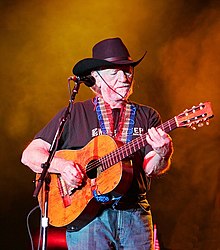

Willie Hugh Nelson (* 29. April 1933[1] in Abbott, Texas) ist ein US-amerikanischer Country-Sänger, Gitarrist und Songwriter. Er zählt zu den bedeutendsten Persönlichkeiten der Outlaw-Bewegung und des Genres im Allgemeinen. Er hatte 22 Nummer-eins-Singles und 14 Nummer-eins-Alben in den Billboard-Country-Charts. Zu seinen bekanntesten Songs zählen Blue Eyes Crying in the Rain, On the Road Again und Always on My Mind sowie Crazy in der Interpretation von Patsy Cline. Außerdem war er in fast 40 Film- und Fernsehproduktionen als Schauspieler tätig. Nelson ist vor allem für seine markante Stimme und seine Gitarrensoli bekannt. So listete der Rolling Stone ihn auf Platz 77 der 100 größten Gitarristen aller Zeiten[2].
Biografie
Kindheit und Jugend
Aus ärmlichen Verhältnissen stammend, wuchs Nelson bei seinen Großeltern auf. Mit sechs Jahren bekam er eine Gitarre geschenkt, mit zehn Jahren trat er erstmals öffentlich auf. Als Teenager spielte Nelson abends in lokalen Honky Tonks. 1950 wurde er zur Air Force eingezogen, aber bald darauf wegen Rückenproblemen entlassen. Er heiratete Martha Matthews, eine Cherokee, und wurde Vater von drei Kindern. Die Familie zog nach Fort Worth, wo Nelson eine Zeit lang als Diskjockey arbeitete.
Anfänge
1956 spielte er in Vancouver, Washington, eine erste selbst finanzierte Single ein, die sich respektabel verkaufte. 1959 – seine Ehe war mittlerweile geschieden – schaffte er es, die Rechte an seinem Song Night Life zu veräußern. Vom Erlös erwarb er ein altes Auto und machte sich auf den Weg nach Nashville. Dort fand er einen Job als Bassist in der Band von Ray Price. In den folgenden Jahren gelang es ihm mehrfach, Songs zu verkaufen – darunter 1961 Hello Walls, mit dem Faron Young Platz 1 der Country-Charts erreichte. Im selben Jahr nahm Patsy Cline sein Crazy auf. Willie Nelson war damit als Songwriter etabliert.
Karriere

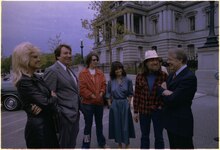
Er heiratete erneut und spielte einige Singles ein, von denen es zwei in die Top-10 schafften. Der große Durchbruch blieb ihm aber zunächst versagt. 1965 wechselte er zu RCA und schloss sich der Grand Ole Opry an. In den folgenden Jahren produzierte er eine lange Folge von nur mäßig erfolgreichen Alben und Singles. Sein Verhältnis zu RCA verschlechterte sich zusehends. Er warf seiner Plattenfirma vor, seine Songs zu verfälschen, sie allzu sehr dem kommerziellen Nashville Sound anzugleichen. RCA hatte tatsächlich das vertragliche Recht, seine Aufnahmen nach eigenem Ermessen zu verändern, ein untragbarer Zustand für einen unabhängigen Charakter wie Nelson.
Weihnachten 1970 brannte sein Haus ab, und Nelson beschloss, Nashville den Rücken zu kehren. Er ging nach Austin, heiratete zum dritten Mal und unterschrieb einen Vertrag bei Atlantic Records. Es wurden zwei Alben produziert: 1973 Shotgun Willie und 1974 Phases and Stages, wieder nur mit durchschnittlichem Erfolg.
Der große Durchbruch kam ein Jahr später. Er wechselte erneut die Plattenfirma und spielte für Columbia das wegweisende Album Red Headed Stranger ein, dessen Singleauskopplung Blue Eyes Crying in the Rain sein erster Nummer-1-Hit wurde und sich sogar in den Pop-Hitparaden platzierte. Seine alte Plattenfirma RCA versuchte, von seinem plötzlichen Ruhm zu profitieren und veröffentlichte aus Archivmaterial das Album: Wanted! The Outlaws. Neben Nelson waren darauf noch Waylon Jennings, Jessi Colter und Tompall Glaser zu hören, die ebenfalls mit dem Nashville-Establishment auf Kriegsfuß standen. Wanted! wurde als erstes Country-Album mehr als eine Million Mal verkauft. 1980 drehte der Regisseur Jerry Schatzberg den Musikfilm On the Road Again, bei dem Nelson die Hauptrolle übernahm. Für den gleichnamigen Song wurde er für den Oscar nominiert.
Outlaw-Bewegung

Nelson wurde zum Mittelpunkt der Outlaw-Bewegung, in der sich Musiker sammelten, die sich von den „kommerziellen Fesseln“ Nashvilles lösen und ihre eigene Musik spielen wollten. Nach anfänglicher Verärgerung war Nashville begeistert, denn die Outlaw-Musik verkaufte sich blendend und brachte frischen Wind in die stagnierende Country-Szene.
Willie Nelson war in den nächsten Jahren besonders mit Duetten erfolgreich. Zunächst mit seinem Freund Waylon Jennings – Waylon & Willie – und dann auch mit anderen etablierten Größen der Country-Musik wie beispielsweise Merle Haggard mit dem Hit Pancho and Lefty sowie Ray Price, Dolly Parton und Ray Charles. Am erfolgreichsten war ein Duett mit Julio Iglesias: To All the Girls I’ve Loved Before, das Albert Hammond geschrieben hat. 1978 erschien Nelsons kommerziell erfolgreichstes Album Stardust. 1979 wurde in Nashville ein Museum für Willie Nelson eröffnet.
Highwaymen
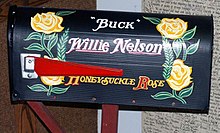
Mitte der 1980er Jahre tat er sich mit Kris Kristofferson, Johnny Cash und Waylon Jennings unter dem Namen Highwaymen zusammen. In den folgenden zehn Jahren nahmen die Musiker gemeinsam drei Alben auf und gingen mehrfach auf sehr erfolgreiche Welttourneen. 1985 beteiligte sich Nelson am Projekt USA for Africa. Ebenfalls 1985 hob Nelson zusammen mit John Mellencamp das Farm-Aid-Festival zur Unterstützung landwirtschaftlicher Familienbetriebe in den USA aus der Taufe. Dieses Festival wird seither jährlich veranstaltet und mittlerweile auch von Neil Young und Dave Matthews mitorganisiert.[3]
1990 hatten sich Steuerschulden von über 16 Millionen Dollar angehäuft. Willie Nelson verlor seinen gesamten Besitz. Der Erlös seiner nächsten Alben ging vollständig an das Finanzamt, es gelang ihm, bis 1993 seine Schulden zu begleichen. Im selben Jahr erhielt er die größte Auszeichnung, die die Countrymusik zu vergeben hat: Er wurde in die Country Music Hall of Fame aufgenommen.
Schauspieler
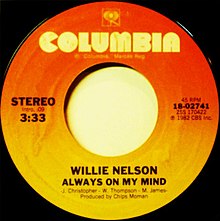
Schon 1979 spielte Nelson neben Robert Redford und Jane Fonda in Der elektrische Reiter (The Electric Horseman). 1997 übernahm Nelson eine Nebenrolle im Kinofilm Wag the Dog, er spielte einen Songwriter. 2002 trat er in der US-Krimiserie Monk in der zwölften Folge der ersten Staffel, die in Deutschland unter dem Namen Mr. Monk und Willie Nelson ausgestrahlt wurde, als Hauptverdächtiger in einem Mordfall auf. 2005 spielte er Onkel Jesse in der Kinoadaption der erfolgreichen Serie Ein Duke kommt selten allein und steuerte seine Interpretation der Titelmelodie Good Ol' Boys zum Soundtrack bei.
Ebenfalls trat er im Musikvideo der Coverversion von These Boots Are Made for Walkin’ von Jessica Simpson auf und hatte Gastauftritte in der Fernsehserie Nash Bridges, in der Folge El Viejo der dritten Staffel von Miami Vice sowie in den Kinofilmen Austin Powers, Half Baked – Völlig high und durchgeknallt und Bierfest. Zudem gibt es eine Zeichentrick-Parodie namens Willie Nelson and the Strokes, die Bestandteil der Sendung VH1-Illustrated ist.
2006 steuerte Nelson den Song He Was a Friend of Mine zum Soundtrack des Films Brokeback Mountain bei und veröffentlichte im selben Jahr den Song Cowboys are Frequently Secretly (Fond of Each Other), dessen Text 1981 von Ned Sublette geschrieben worden war.
Ebenfalls 2006 spielte er sich selbst im Film Broken Bridges mit Toby Keith und Kelly Preston in den Hauptrollen. Im Trio mit Toby Keith und BeBe Winans wurde außerdem der Song Uncloudy Day auf dem Soundtrack veröffentlicht. Im Jahr 2008 folgte wieder eine Rolle an der Seite von Toby Keith in der Komödie Beer for My Horses.
Gegenwart
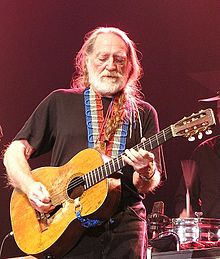

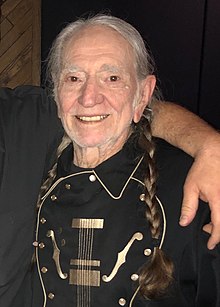
1993 coverte er im Duett mit der irischen Sängerin Sinéad O’Connor den Song Don’t Give Up von Peter Gabriel, den dieser 1986 im Original mit Kate Bush gesungen hat. Das Stück ist auf Nelsons Studioalbum Across the Borderline enthalten, das von Don Was, Paul Simon und Roy Halee produziert wurde.[4]
Zwischen 2002 und 2008 stand Nelson beim Alternative-Country-Label Lost Highway unter Vertrag, bei dem er einige von der Kritik gelobte Alben herausbrachte. Erwähnenswert ist unter anderem Last of the Breed mit Ray Price, Merle Haggard und George Jones aus dem Jahr 2007. Nach seinem letzten Album für Lost Highway, Moment of Forever, wechselte Nelson zu Blue Note / EMI, wo 2008 in Zusammenarbeit mit dem Jazz-Trompeter Wynton Marsalis ein Album erschien. Auf der Platte interpretieren beide unter anderem den Klassiker Georgia on My Mind. Nach dem gemeinsamen Album Willie and the Wheel mit der Western-Swing-Band Asleep at the Wheel folgte 2009 Nelsons zweites Album für Blue Note, American Classic.
Im Februar 2012 unterzeichnete Nelson einen Plattenvertrag bei Legacy Recordings. Seine erste Veröffentlichung für das Label war das Album Heroes, für das er unter anderem Ray Price, Merle Haggard, Snoop Dogg, Kris Kristofferson, Jamey Johnson, Billy Joe Shaver und Sheryl Crow als Gastmusiker gewinnen konnte. Das Album belegte Platz vier der Billboard-Country-Alben-Charts.[5]
Die erhöhte Medienpräsenz anlässlich seines 80. Geburtstages und die Erschließung neuer Hörerschichten hatten zur Folge, dass Nelsons Alben auch in den regulären US-Album-Charts wieder sehr erfolgreich waren. Mit Platz 9 bzw. Platz 5 belegten seine beiden letzten Studioalben die höchsten Platzierungen seit über 30 Jahren. Mit 80 Jahren erlangte Nelson noch den 5. Dan in Gongkwon Yusul.[6]
An seinem 90. Geburtstag am 29. April 2023 und am darauffolgenden Abend gab er jeweils ein vierstündiges Konzert in der Hollywood Bowl. Zahlreiche Gäste aus den verschiedensten musikalischen Bereichen beteiligten sich daran. Die Liste reicht dabei von Billy Strings, Lyle Lovett, Dwight Yoakam und Rosanne Cash bis Edie Brickell, Keith Richards, Neil Young, Norah Jones, Ziggy Marley oder Snoop Dogg und vielen anderen. Ausschnitte daraus wurden am 14. Dezember 2023 unter dem Titel Long Story Short: Willie Nelson 90: Live At The Hollywood Bowl veröffentlicht.[7]
Drogen
Nelson rauchte einmal mit Jimmy Carters Sohn Marihuana auf dem Dach des Weißen Hauses.[8] Im November 2010 wurde Nelson wegen Besitzes von etwa 170 Gramm Marihuana in Texas festgenommen und gegen eine Kaution von 2500 Dollar entlassen. Bereits 2006 war er wegen Drogenbesitzes zu einer Geldstrafe und sechs Monaten Bewährung verurteilt worden.[9][10] Er setzt sich seit Jahrzehnten öffentlich für Cannabis und dessen Legalisierung ein, einige seiner Lieder behandeln auch das Thema. Unter dem Namen Willie’s Reserve vertreibt er legales Marihuana und andere Cannabisprodukte.[11]
Willie Nelson's Fourth of July Picnic
Als maßgeblicher Mitausrichter und Organisator beteiligt ist Willie Nelson beim jährlich stattfindenden Willie Nelson's Fourth of July Picnic – einem Country-Musikfestival, dass mit kleinen und auch größeren Unterbrechungen seit 1973 stattfindet. Inspiriert wurde Nelson von dem 1972 stattfindenden Dripping Springs Reunion – einem Open Air, das auf der Dripping Springs Ranch in Texas stattfand. Nelson war von dem Konzert derart angetan, dass er beschloss, ein ähnliches Festival auf die Beine zu stellen.[12]
Die erste Veranstaltung war ein Erfolg. In den späten 1970er-Jahren indes machte es der schlechte Ruf des Konzerts aufgrund wiederkehrender Sicherheitsprobleme zunehmend schwierig, Veranstaltungsorte zu finden. In den 1980er-Jahren wendeten sich die ursprünglichen Probleme zwar zum Besseren. Trotz ihres guten Renommées beim Publikum und bei Künstlern sahen sich die Veranstalter allerdings immer wieder gezwungen, Veranstaltungsstadt und Veranstaltungsort zu wechseln. Das ursprünglich den Ruf eines „Hillbilly-Woodstock“ innehabende und stets am oder um den 4. Juli herum stattfindende Festival entwickelte sich mit den Jahren zu einem Kristallisationspunkt von Mainstream-Countryszene, der Outlaw-Bewegung anhängenden Interpreten und neueren aus der Americana-, Alternative-Country- und Singer-Songwriter-Szene.[12]
Wenn auch vergleichsweise stark mit Acts aus der texanischen Country-Szene bestückt, zählt das – von Willie Nelson weiterhin mit ausgerichtete – Willie Nelson's Fourth of July Picnic zu den renommiertesten Festivals der Sparte. Auftritte im alten und im neuen Jahrtausend hatten dort unter anderem: Waylon Jennings, Kris Kristofferson, John Prine, Doug Sahm, Townes Van Zandt, Kinky Friedman, Robert Earl Keen, Rita Coolidge, die Pointer Sisters, Leon Russell, Ray Wylie Hubbard, Asleep at the Wheel, Jessi Colter, Linda Ronstadt, David Allan Coe, die Stray Cats, Joe Ely, Johnny Cash und June Carter Cash, Neil Young, Hank Snow, The Highwaymen, Shelby Lynne, Billy Joe Shaver, Dwight Yoakam, Emmylou Harris, Merle Haggard, Billy Bob Thornton, Steve Earle, Hayes Carll, Bob Dylan sowie John Mellencamp.[12][13]
Instrument
Nelson spielt seit 1969 eine Gitarre mit dem Namen „Trigger“. Es handelt sich um eine Classical Acoustic, Martin N-20. Nelson ließ in das Instrument einen Tonabnehmer integrieren, der von einer beschädigten Baldwin 800C stammt. Das Instrument wurde bei rund 10.000 Auftritten gespielt und ist auf verschiedenen Plattenaufnahmen verewigt. Das Instrument wurde über die Jahre soweit abgenutzt, dass sich eine Öffnung in der Decke gebildet hat. Trigger hat durch diese Abnutzungen eine eigene Klangcharakteristik gewonnen. Verschiedene Persönlichkeiten ritzten ihr Autogramm in die Gitarre, und es wurde ein Dokumentationsfilm zu diesem Instrument veröffentlicht.
Diskografie
Studioalben
| Jahr | Titel Musiklabel | Höchstplatzierung, Gesamtwochen, AuszeichnungChartplatzierungenChartplatzierungen[14] (Jahr, Titel, Musiklabel, Platzierungen, Wochen, Auszeichnungen, Anmerkungen) | Anmerkungen | |||||
|---|---|---|---|---|---|---|---|---|
| 1962 | And Then I Wrote Liberty Records | — | — | — | — | — | — |
Erstveröffentlichung: September 1962 |
| 1963 | Here’s Willie Nelson Liberty Records | — | — | — | — | — | — | |
| 1965 | Country Willie – His Own Songs RCA Records | — | — | — | — | — | — | |
| 1966 | Country Favorites – Willie Nelson Style RCA Records | — | — | — | — | — | Country9 (17 Wo.)Country | |
| 1967 | Make Way for Willie Nelson RCA Records | — | — | — | — | — | Country9 (20 Wo.)Country | |
| „The Party’s Over“ and Other Great Willie Nelson Songs RCA Records | — | — | — | — | — | Country7 (14 Wo.)Country | ||
| 1968 | Texas in My Soul RCA Records | — | — | — | — | — | — | |
| Good Times RCA Records | — | — | — | — | — | Country29 (7 Wo.)Country | ||
| 1969 | My Own Peculiar Way RCA Records | — | — | — | — | — | Country39 (4 Wo.)Country | |
| 1970 | Both Sides Now RCA Records | — | — | — | — | — | — | |
| Laying My Burdens Down RCA Records | — | — | — | — | — | — | ||
| 1971 | Willie Nelson and Family RCA Records | — | — | — | — | — | — | |
| Yesterday’s Wine RCA Records | — | — | — | — | — | — | ||
| 1972 | The Words Don’t Fit the Picture RCA Records | — | — | — | — | — | — | |
| The Willie Way RCA Records | — | — | — | — | — | Country34 (4 Wo.)Country | ||
| 1973 | Shotgun Willie Atlantic Records | — | — | — | — | — | Country41 (7 Wo.)Country | |
| 1974 | Phases and Stages Atlantic Records | — | — | — | — | US187 (3 Wo.)US | Country34 (11 Wo.)Country | |
| 1975 | Red Headed Stranger Columbia Records | — | — | — | — | US28 ×2 (43 Wo.)US | Country1 (121 Wo.)Country | |
| 1976 | The Sound in Your Mind Columbia Records | — | — | — | — | US48 (15 Wo.)US | Country1 (35 Wo.)Country | |
| The Troublemaker Columbia Records | — | — | — | — | US60 (7 Wo.)US | Country1 (30 Wo.)Country | ||
| 1977 | To Lefty from Willie Columbia Records | — | — | — | — | US91 (12 Wo.)US | Country2 (22 Wo.)Country | |
| 1978 | There’ll Be No Teardrops Tonight United Artist Records | — | — | — | — | — | Country46 (2 Wo.)Country | |
| Stardust Columbia Records | — | — | — | — | US30 ×5 (117 Wo.)US | Country1 (551 Wo.)Country | ||
| 1979 | Sings Kristofferson Columbia Records | — | — | — | — | US42 (25 Wo.)US | Country5 (50 Wo.)Country | |
| Pretty Paper CBS Records | — | — | — | — | US73 (8 Wo.)US | Country11 (7 Wo.)Country | ||
| The Electric Horseman CBS Records | — | — | — | — | US52 (25 Wo.)US | Country3 (37 Wo.)Country | ||
| 1980 | Honeysuckle Rose Columbia Records | — | — | — | — | US— ×2 | Country26 (18 Wo.)Country | |
| Family Bible Songbird Records | — | — | — | — | — | — | ||
| 1981 | Somewhere Over the Rainbow Columbia Records | — | — | — | — | US31 (23 Wo.)US | Country1 (36 Wo.)Country | |
| 1982 | Always on My Mind Columbia Records | — | — | — | UK49 (99 Wo.)UK | US2 ×4 (99 Wo.)US | Country1 (253 Wo.)Country | |
| 1983 | Tougher Than Leather Columbia Records | — | — | — | — | US39 (20 Wo.)US | Country4 (32 Wo.)Country | |
| My Own Way Columbia Records | — | — | — | — | US182 (5 Wo.)US | — | ||
| Without a Song Columbia Records | — | — | — | — | US54 (34 Wo.)US | Country3 (73 Wo.)Country | ||
| 1984 | City of New Orleans Columbia Records | — | — | — | — | US69 (26 Wo.)US | Country1 (45 Wo.)Country | |
| Angel Eyes Columbia Records | — | — | — | — | US116 (7 Wo.)US | — | ||
| 1985 | Me and Paul S&P Records | — | — | — | — | US152 (7 Wo.)US | Country3 (40 Wo.)Country | |
| 1986 | Partners Columbia Records | — | — | — | — | — | Country13 (26 Wo.)Country | |
| The Promiseland Columbia Records | — | — | — | — | — | Country1 (28 Wo.)Country | ||
| 1987 | Island in the Sea Columbia Records | — | — | — | — | — | Country14 (19 Wo.)Country | |
| 1988 | What a Wonderful World Columbia Records | — | — | — | — | — | Country6 (40 Wo.)Country | |
| 1989 | A Horse Called Music Columbia Records | — | — | — | — | — | Country2 (41 Wo.)Country | |
| 1990 | Born for Trouble Columbia Records | — | — | — | — | — | Country31 (28 Wo.)Country | |
| 1992 | Any Old Arms Won’t Do Sound Solution | — | — | — | — | — | — | |
| The IRS Tapes: Who’ll Buy My Memories? Sony Records | — | — | — | — | — | — | ||
| 1993 | Across the Borderline Columbia Records | — | — | — | — | US75 (16 Wo.)US | Country15 (24 Wo.)Country | |
| 1994 | Moonlight Becomes You Justice Records | — | — | — | — | US188 (1 Wo.)US | Country37 (10 Wo.)Country | |
| Healing Hands of Time Capitol Records | — | — | — | — | US103 (11 Wo.)US | Country17 (18 Wo.)Country | ||
| Six Hours at Pedemales Step one Records | — | — | — | — | — | — | ||
| 1995 | Just One Love Transatlantic Records | — | — | — | — | — | — | |
| 1996 | Spirit Island Records | — | — | — | UK78 (1 Wo.)UK | US132 (2 Wo.)US | Country20 (17 Wo.)Country | |
| How Great Thou Art Fine Arts Records | — | — | — | — | — | — | ||
| 1998 | Teatro Island Records | — | — | — | — | US104 (6 Wo.)US | Country17 (28 Wo.)Country | |
| 1999 | Night and Day Free Falls Entertainment | — | — | — | — | — | — | |
| 2000 | Tales out of Luck (Me and the Drummer) Luck Records | — | — | — | — | — | — | |
| Milk Cow Blues Island Records | — | — | — | — | US83 (7 Wo.)US | — | ||
| 2001 | Rainbow Connection Island Records | — | — | — | — | — | Country52 (7 Wo.)Country | |
| 2002 | The Great Divide Lost Highway Records | — | — | — | — | US43 (23 Wo.)US | Country5 (64 Wo.)Country | |
| 2004 | Nacogdoches Texas Roadhouse | — | — | — | — | — | — | |
| It Will Always Be Lost Highway Records | — | — | — | — | US75 (3 Wo.)US | Country12 (17 Wo.)Country | ||
| 2005 | Countryman Lost Highway Records | — | — | — | — | US46 (7 Wo.)US | Country6 (15 Wo.)Country |
Erstveröffentlichung: 2. August 2005 |
| 2006 | You Don’t Know Me: The Songs of Cindy Walker Lost Highway Records | — | — | — | — | US114 (4 Wo.)US | Country24 (12 Wo.)Country |
Erstveröffentlichung: 16. März 2006 |
| Songbird Lost Highway Records | — | — | — | — | US87 (2 Wo.)US | Country19 (11 Wo.)Country |
Erstveröffentlichung: 21. Oktober 2006 | |
| 2008 | Moment of Forever Lost Highway Records | — | — | — | — | US56 (4 Wo.)US | Country8 (16 Wo.)Country |
Erstveröffentlichung: 29. Januar 2008 |
| 2009 | American Classic Blue Note Records | DE96 (1 Wo.)DE | — | — | — | US43 (6 Wo.)US | Country14 (25 Wo.)Country |
Erstveröffentlichung: 25. August 2009 |
| 2010 | Country Music Rounder Records | — | — | — | — | US20 (6 Wo.)US | Country4 (19 Wo.)Country |
Erstveröffentlichung: 20. April 2010 |
| 2011 | Remember Me Vol. 1 R&J Records | — | — | — | — | — | Country40 (9 Wo.)Country |
Erstveröffentlichung: 21. November 2011 |
| 2012 | Heroes Legacy Recordings | — | AT34 (2 Wo.)AT | CH72 (2 Wo.)CH | UK73 (1 Wo.)UK | US18 (7 Wo.)US | — |
Erstveröffentlichung: 15. Mai 2012 |
| 2013 | Let’s face the Music and Dance Legacy Recordings | — | — | — | — | US49 (3 Wo.)US | Country16 (12 Wo.)Country |
Erstveröffentlichung: 16. April 2013 |
| To All the Girls … Legacy Recordings | — | — | CH66 (2 Wo.)CH | UK72 (1 Wo.)UK | US9 (8 Wo.)US | Country2 (22 Wo.)Country |
Erstveröffentlichung: 15. Oktober 2013 | |
| 2014 | Band of Brothers Legacy Recordings | — | — | — | UK52 (1 Wo.)UK | US5 (9 Wo.)US | Country1 (23 Wo.)Country |
Erstveröffentlichung: 17. Juni 2014 |
| 2016 | Summertime: Willie Nelson Sings Gershwin Legacy Recordings | — | — | — | — | US40 (2 Wo.)US | — |
Erstveröffentlichung: 26. Februar 2016 |
| For the Good Times: A Tribute to Ray Price Legacy Recordings | — | — | — | — | US84 (1 Wo.)US | Country5 (6 Wo.)Country |
Erstveröffentlichung: 16. September 2016 | |
| 2017 | God’s Problem Child Legacy Recordings | DE76 (1 Wo.)DE | AT41 (1 Wo.)AT | CH42 (1 Wo.)CH | UK64 (1 Wo.)UK | US10 (5 Wo.)US | Country1 (9 Wo.)Country |
Erstveröffentlichung: 28. April 2017 |
| 2018 | Last Man Standing Legacy Recordings | DE39 (2 Wo.)DE | AT32 (2 Wo.)AT | CH34 (2 Wo.)CH | UK46 (1 Wo.)UK | US14 (3 Wo.)US | Country3 (5 Wo.)Country |
Erstveröffentlichung: 27. April 2017 |
| My Way Legacy Recordings | — | AT58 (1 Wo.)AT | CH75 (1 Wo.)CH | — | US36 (2 Wo.)US | — |
Erstveröffentlichung: 14. September 2017 | |
| 2019 | Ride Me Back Home Legacy Recordings | DE54 (1 Wo.)DE | AT18 (2 Wo.)AT | CH18 (3 Wo.)CH | — | US18 (2 Wo.)US | Country2 (3 Wo.)Country |
Erstveröffentlichung: 21. Juni 2019 |
| 2020 | First Rose of Spring Legacy Recordings | DE43 (1 Wo.)DE | AT8 (3 Wo.)AT | CH8 (3 Wo.)CH | UK76 (1 Wo.)UK | US49 (1 Wo.)US | Country5 (2 Wo.)Country |
Erstveröffentlichung: 3. Juli 2020 |
| 2021 | That’s Life Legacy Recordings | DE97 (1 Wo.)DE | — | CH33 (2 Wo.)CH | — | US58 (1 Wo.)US | — |
Erstveröffentlichung: 26. Februar 2021 |
| 2022 | A Beautiful Time Legacy Recordings | DE44 (1 Wo.)DE | — | CH19 (2 Wo.)CH | — | US100 (1 Wo.)US | Country13 (1 Wo.)Country |
Erstveröffentlichung: 29. April 2022 |
| 2023 | I Don’t Know a Thing About Love Legacy Recordings | — | — | CH85 (1 Wo.)CH | — | — | — |
Erstveröffentlichung: 3. März 2023 |
| Bluegrass Legacy Recordings | — | — | CH64 (1 Wo.)CH | — | — | — |
Erstveröffentlichung: 15. September 2023 | |
grau schraffiert: keine Chartdaten aus diesem Jahr verfügbar
Auszeichnungen
- 1976: CMA Award in der Kategorie Vocal Duo of the Year (mit Waylon Jennings)
- 1976: CMA Award in der Kategorie Single Of The Year für Good Hearted Woman (mit Waylon Jennings)
- 1976: CMA Award in der Kategorie Album Of The Year für Wanted: The Outlaws (mit Waylon Jennings, Tompall Glaser und Jessi Colter)
- 1976: Grammy in der Kategorie Beste männliche Gesangsdarbietung - Country für Blue Eyes Crying In The Rain
- 1977: American Music Award in der Kategorie Favorite Country Single für Blue Eyes Crying In The Rain
- 1979: ACM Award in der Kategorie Entertainer of the Year
- 1979: CMA Award in der Kategorie Entertainer of the Year
- 1979: Grammy in der Kategorie Beste männliche Gesangsdarbietung – Country für Georgia on My Mind
- 1979: Grammy in der Kategorie Beste Countrydarbietung eines Duos oder einer Gruppe mit Gesang für Mamas Don’t Let Your Babies Grow Up To Be Cowboys (mit Waylon Jennings)
- 1981: Grammy in der Kategorie Bester Countrysong für On The Road Again
- 1982: ACM Award in der Kategorie Single of the Year für Always on My Mind
- 1982: ACM Award in der Kategorie Album of the Year für Always on My Mind
- 1982: American Music Award in der Kategorie Favorite Country Male Artist
- 1982: CMA Award in der Kategorie Single Of The Year für Always on My Mind
- 1982: CMA Award in der Kategorie Album Of The Year für Always on My Mind
- 1983: American Music Award in der Kategorie Favorite Country Album für Always on My Mind
- 1983: CMA Award in der Kategorie Vocal Duo of the Year (mit Merle Haggard)
- 1983: Grammy in der Kategorie Beste männliche Gesangsdarbietung - Country für Always on My Mind
- 1983: Grammy in der Kategorie Bester Countrysong für Always on My Mind
- 1984: ACM Award in der Kategorie Single of the Year für To All the Girls I’ve Loved Before (mit Julio Iglesias)
- 1984: American Music Award in der Kategorie Favorite Country Male Artist
- 1984: CMA Award in der Kategorie Vocal Duo of the Year (mit Julio Iglesias)
- 1986: American Music Award in der Kategorie Favorite Country Male Artist
- 1986: American Music Award in der Kategorie Favorite Country Single für Forgiving You Was Easy
- 1987: American Music Award in der Kategorie Favorite Country Male Artist
- 1990: Grammy Legend Award
- 2000: Grammy für das Lebenswerk
- 2002: CMA Award in der Kategorie Vocal Event of the Year für Mendocino County Line (mit Lee Ann Womack)
- 2002: CMT Flameworthy Video Music Award in der Kategorie Video Collaboration of the Year für Mendocino County Line (mit Lee Ann Womack)
- 2003: Grammy in der Kategorie Beste Zusammenarbeit mit Gesang – Country für Mendocino County Line (mit Lee Ann Womack)
- 2004: CMT Flameworthy Video Music Award in der Kategorie Collaborative Video of the Year für Beer for My Horses (mit Toby Keith)
- 2008: Grammy in der Kategorie Beste Zusammenarbeit mit Gesang – Country für Lost Highway (mit Ray Price)
- 2017: Grammy in der Kategorie Bestes Gesangsalbum – Traditioneller Pop für Summertime: Willie Nelson Sings Gershwin
- 2019: Grammy in der Kategorie Bestes Gesangsalbum – Traditioneller Pop für My Way
- 2019: Grammy in der Kategorie Beste Country-Solodarbietung für Ride Me Back Home
- Der Rolling Stone listete Nelson auf Rang 77 der 100 größten Gitarristen sowie auf Rang 88 der 100 größten Sänger und Rang 60 der 100 größten Songwriter aller Zeiten.[2][15][16]
Filmografie (Auswahl)
- 1979: Der elektrische Reiter (The Electric Horseman)
- 1981: Der Einzelgänger (Thief)
- 1982: Die Ballade vom Banditen Barbarosa (Barbarosa)
- 1982: Gulag 2 (Coming Out of the Ice)
- 1984: Der Songschreiber (Songwriter)
- 1986: Die letzten Tage von Frank und Jesse James (The Last Days of Frank and Jesse James)
- 1986: Miami Vice (Fernsehserie, 1 Episode)
- 1986: Höllenfahrt nach Lordsburg (Stagecoach) (Fernsehfilm)
- 1988: Die Glorreichen 9 (Once Upon a Texas Train)
- 1988: Gringos, Gold und flotte Girls (Where the Hell’s That Gold?!!?)
- 1990: Zwei Asse schlagen zu (Pair of Aces)
- 1991: Zwei Asse schlagen wieder zu (Another Pair of Aces: Three of a Kind)
- 1996, 1998: Dr. Quinn – Ärztin aus Leidenschaft (Dr. Quinn, Medicine Woman) (Fernsehserie, 2 Episoden)
- 1997: Der 100.000 $ Fisch (Gone Fishin’)
- 1997: Nash Bridges (Fernsehserie, 1 Episode)
- 1997: Wag the Dog – Wenn der Schwanz mit dem Hund wedelt (Wag the Dog)
- 1998: Half Baked – Völlig high und durchgeknallt (Half Baked)
- 1999: Austin Powers – Spion in geheimer Missionarsstellung (Austin Powers: The Spy Who Shagged Me)
- 1999: Outlaw Kill (Outlaw Justice)
- 2000: Die Simpsons (The Simpsons) (Fernsehserie, Episode Hinter den Lachern)
- 2002, 2004: Monk (Fernsehserie, 2 Episoden)
- 2002: The Country Bears
- 2004: Hawaii Crime Story (The Big Bounce)
- 2005: Ein Duke kommt selten allein (The Dukes of Hazzard)
- 2006: Bierfest (Beerfest)
- 2007: Ein Duke kommt selten allein – Wie alles begann (The Dukes of Hazzard: The Beginning)
- 2008: Beer for My Horses
- 2008: Surfer, Dude
- 2023: Willie and Me
Literatur
- Willie Nelson mit David Ritz: Mein Leben. Eine lange Geschichte. Heyne, München 2015, ISBN 978-3-453-27006-0.
Weblinks
- Nelsons Webauftritt (englisch)
- Website des Nelson-Museums in Nashville (englisch)
- Willie Nelson bei Discogs
- Willie Nelson bei IMDb
Musikbeispiele
- Willie Nelson: Funny How Time Slips Away (Official Audio) auf YouTube
- Willie Nelson: On The Road Again (Official Audio) auf YouTube
- Willie Nelson: Always on My Mind (Official Video) auf YouTube
Einzelnachweise
- ↑ 25 Things You May Not Know About Country Icon Willie Nelson. theboot.com, 29. April 2022, abgerufen am 20. Juni 2022.
- ↑ a b 100 Greatest Guitarists of All Time. Rolling Stone, 18. Dezember 2015, abgerufen am 7. August 2017 (englisch).
- ↑ About Farm Aid. Abgerufen am 5. September 2016 (amerikanisches Englisch).
- ↑ Willie Nelson Don’t Give Up. Rate Your Music, 2023, abgerufen am 19. August 2023 (amerikanisches Englisch).
- ↑ billboard.com
- ↑ Martin Chilton: Willie Nelson gets 5th-degree black belt at 81. telegraph.co.uk, 29. April 2014, abgerufen am 20. Oktober 2017 (englisch).
- ↑ Gunther Matejka: Various Artists - Long Story Short: Willie Nelson 90: Live at the Hollywood Bowl. 14. Dezember 2023, abgerufen am 19. Dezember 2023 (deutsch).
- ↑ Kim Kelly: Willie Nelson Definitely Smoked Weed on the Roof of the White House with Jimmy Carter’s Son. In: Noisey. 1. September 2015, abgerufen am 12. April 2019 (amerikanisches Englisch).
- ↑ Willie Nelson Charged With Pot Possession in Texas in: abcnews vom 27. November 2010
- ↑ Willie Nelson mit Marihuana erwischt in: Zeit Online vom 27. November 2010
- ↑ Willie’s Reserve. Abgerufen am 12. April 2019 (amerikanisches Englisch).
- ↑ a b c Willie Nelson's Fourth of July Picnic, Laurie E. Jasinski, Texas State Historical Association (TSHA), 15. Dezember 2006–8. März 2018 (englisch)
- ↑ A Look Back At Willie Nelson’s 4th Of July Picnic Lineups From Years Past, whiskeyriff.com, aufgerufen am 15. Januar 2024 (englisch)
- ↑ Chartquellen: DE CH UK US
- ↑ 100 Greatest Singers of All Time. Rolling Stone, 2. Dezember 2010, abgerufen am 7. August 2017 (englisch).
- ↑ The 100 Greatest Songwriters of All Time. Rolling Stone, August 2015, abgerufen am 7. August 2017 (englisch).
| Personendaten | |
|---|---|
| NAME | Nelson, Willie |
| ALTERNATIVNAMEN | Nelson, Willie Hugh (vollständiger Name) |
| KURZBESCHREIBUNG | US-amerikanischer Country-Sänger und Songwriter |
| GEBURTSDATUM | 29. April 1933 |
| GEBURTSORT | Abbott, Texas, USA |
Same artist(s), but different album(s)...
-

Willie Nelson ¦ Bluegrass
CHF 34.00 inkl. MwSt In den Warenkorb -

The Highwaymen ¦ The Very Best Of The Highwaymen
CHF 19.00 inkl. MwSt In den Warenkorb -

Willie Nelson ¦ The Great Divide
CHF 38.00 inkl. MwSt In den Warenkorb -

Willie Nelson ¦ That’s Life
CHF 25.00 inkl. MwSt In den Warenkorb -

Willie Nelson ¦ That’s Life
CHF 35.00 inkl. MwSt In den Warenkorb


